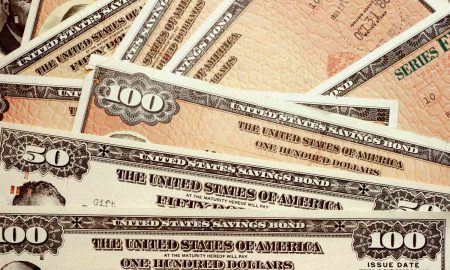
Why Mortgage Demand Is Crashing as Interest Rates Skyrocket

Imagine having a favorite local ice cream shop that suddenly jacked up its prices by 50%. You would probably think twice before buying, right? Now, consider the U.S. housing market as that ice cream shop, and instead of paying more for a scoop of Rocky Road, you are doling out extra dollars for your dream home.
That is the reality many aspiring homeowners and refinancers are facing as interest rates reach heights unseen in nearly a quarter-century.

Ketut / Pexels / Interest rates are going up by a degree that was not seen in the last two decades.
Last week, the average contract interest rate for 30-year fixed-rate mortgages with conforming loan balances (that is a fancy way of saying loans of $726,200 or less) climbed to a staggering 7.41%, up from 7.31%. To put that into perspective, rates have not been this high since the days when Destiny’s Child ruled the airwaves, and Y2K was all the rage.
Now, for some homeowners or those in the market for a new home, these numbers might feel abstract. But let’s break it down: When interest rates rise, your monthly mortgage payments increase. This can transform what was once an affordable dream home into a monthly budget-buster.
And Guess What? People Have Noticed
Refinancers, in particular, seem to be tightening their belts. Applications to refinance a home loan dipped 1% for the week. Year-over-year, the figures are even more startling, with refinancing requests down a whopping 21%. Those looking to snag lower interest rates from yesteryears are now feeling the pinch.

Andrea / Pexels / Given the mortgage and interest rate spike, it just doesn’t make financial sense to refinance at these new, higher rates for many.
Similarly, fresh faces in the housing market are also pulling back. Mortgage applications for new home purchases slid by 2% for the week, and if we hop in our time machine and compare this to the same week a year ago, they have plummeted by 27%.
So, What Does All This Mean for You?
If you are in the market to buy, it is essential to crunch those numbers and truly understand what these rates mean for your monthly payments and long-term financial health. A slightly higher interest rate over a 30-year loan can translate to tens of thousands of extra dollars.
And if you are considering refinancing, it might be a game of patience. Waiting and watching the market could potentially save you from locking into an unfavorable rate.

Karolina / Pexels / For home buyers, a slightly higher interest rate over a 30-year loan can translate to tens of thousands of extra dollars.
But it is not all doom and gloom. While these rates are high compared to recent years, they are not historically unprecedented. The housing market is resilient and has seen fluctuations like this before.
Moreover, there are other factors at play – like home prices, supply and demand, and broader economic conditions – that influence the health of the housing market.
The Way Out
To navigate these choppy waters, arm yourself with knowledge. Engage a trusted financial advisor or mortgage broker. Make sure to discuss your personal and financial situation. And remember, the housing market is like any other market. It has its ups and downs.
If history has shown us anything, it is that patience, research, and a pinch of determination can go a long way.
More in Loans & Mortgages
-
`
Why 50-Year-Olds Are Looking for a Career Change
In today’s fast-paced and ever-evolving job market, it’s not uncommon to see individuals in their 50s embarking on new career paths....
November 20, 2023 -
`
Santo Spirits | Sammy Hagar and Guy Fieri’s Joint Venture
In the world of entrepreneurial partnerships, some unions are destined for greatness. The unexpected alliance between Sammy Hagar, the iconic Van...
November 12, 2023 -
`
Branded Content: A Genuine Way to Connect With Your Audience
Have you ever binge-watched a series on Netflix, only to later realize that the beverage everyone’s sipping on is that brand...
November 3, 2023 -
`
Southwest Airlines Tackles Passenger and Labor Challenges
Southwest Airlines, a prominent player in the aviation industry, has found itself at a crossroads, facing a combination of passenger dissatisfaction...
October 28, 2023 -
`
Everything You Need to Know About Blended Interest Rates
Hou ever blended a smoothie and thought, “How on Earth do my strawberries, spinach, and protein powder come together to taste...
October 17, 2023 -
`
The Osbournes ‘Relaunch’ Podcast After 5 Year Break
If you were glued to your TV in the early 2000s, there is no way you missed the hilarious, raucous, and...
October 10, 2023 -
`
Tesla in China: Back-to-Back Price Drops, But No Sales Jump?
As temperatures soared in the summer of 2023, Tesla seemed to be heating things up in the Chinese market too. A...
October 6, 2023 -
`
Navigating Red Flags in the Workplace
In the journey of our careers, it’s not uncommon to encounter red flags in our jobs that signal potential issues or...
September 30, 2023 -
`
Top 6 Best Housing Options for Older Adults
As we grow old, our physical and mental health needs change. In turn, this means that we require more assistance from...
September 21, 2023















You must be logged in to post a comment Login